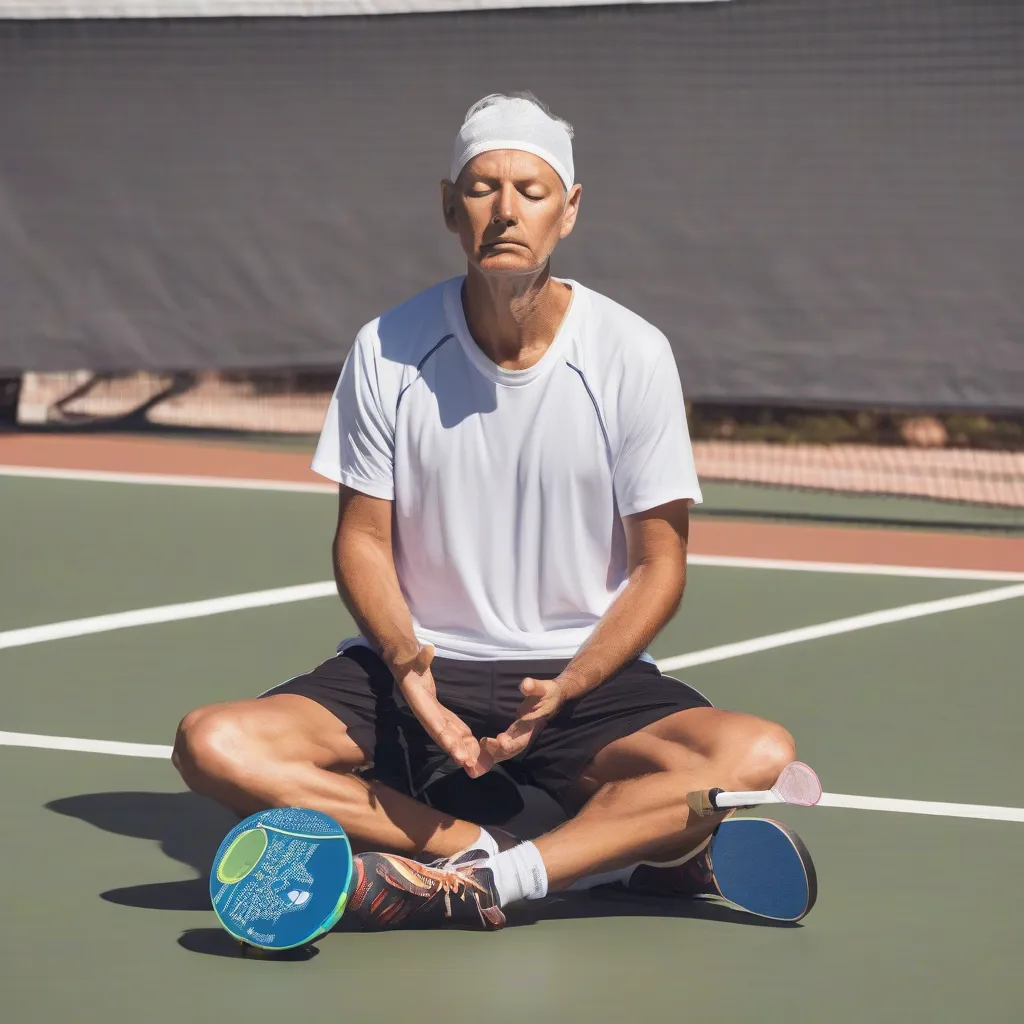Have you ever watched a pickleball game and wondered how some players seem to stay so calm and collected under pressure, while others crumble? The secret isn’t just about physical prowess; it’s about mental fitness. Just like training your body, you can train your mind to enhance your pickleball performance. This article will delve into effective mental fitness strategies to help you achieve pickleball success, covering everything from managing stress to improving focus and boosting confidence.
Understanding the Importance of Mental Fitness in Pickleball
Pickleball is a fast-paced game that demands quick thinking, strategic decision-making, and emotional control. Mental toughness plays a crucial role in handling pressure situations, maintaining focus during long rallies, and bouncing back from setbacks. A strong mental game can be the differentiating factor between a good player and a great one. As legendary tennis player Billie Jean King purportedly said, “Champions keep playing until they get it right.” This reflects the resilience and mental fortitude needed in any racquet sport, including pickleball.
Key Mental Fitness Strategies
Managing Stress and Anxiety
Pressure is inevitable in any competitive environment. Learning to manage stress is crucial for maintaining peak performance. Deep breathing exercises, meditation, and visualization techniques can help calm your nerves and improve focus.
Improving Focus and Concentration
Maintaining unwavering focus during rallies is essential for making smart shots and minimizing errors. Practice mindfulness techniques to stay present in the moment and avoid distractions. Develop pre-point routines to center yourself and prepare for each serve or return. Check out how to maintain focus during pickleball rallies for more tips.
Building Confidence and Self-Belief
Confidence is a crucial ingredient for success in any sport. Believe in your abilities, focus on your strengths, and visualize yourself succeeding. Celebrate your achievements, no matter how small, and learn from your mistakes without dwelling on them. A confident player is more likely to take calculated risks and play aggressively.
Developing a Positive Mindset
A positive mindset can significantly impact your performance. Focus on the process rather than the outcome. View challenges as opportunities for growth and learn from every experience. Surround yourself with supportive teammates and coaches who encourage a positive environment.
Enhancing Emotional Regulation
Pickleball can be an emotional rollercoaster. Learning to manage your emotions, both positive and negative, is crucial for maintaining composure and making rational decisions. Practice techniques like self-talk and reframing negative thoughts to stay calm and focused under pressure.
Strategic Thinking and Decision-Making
Pickleball is a game of strategy. Developing your tactical awareness and decision-making skills is essential for outsmarting your opponents. Analyze your opponents’ strengths and weaknesses, anticipate their shots, and develop strategies to exploit their vulnerabilities. Learn more about basic pickleball rules to enhance your strategic thinking.
Visualization and Mental Rehearsal
Visualization involves mentally rehearsing a successful performance. This technique can help you improve your skills, build confidence, and prepare for competitive situations. Imagine yourself executing perfect shots, making smart decisions, and staying calm under pressure.
Pre- and Post-Match Routines
Developing consistent pre- and post-match routines can help you prepare mentally and physically for competition and recover effectively afterwards. Your pre-match routine might include warming up, stretching, visualizing success, and listening to motivational music. Your post-match routine might involve cooling down, reflecting on your performance, and identifying areas for improvement. Find some best routines for daily pickleball practice sessions here.
Seeking Guidance from a Sports Psychologist
If you’re struggling with mental fitness, consider seeking guidance from a qualified sports psychologist. They can help you develop personalized strategies to overcome mental barriers and achieve peak performance.
The Power of Routine and Preparation
Just as physical training requires consistency, so does mental fitness. Incorporate mental exercises into your daily routine, just like you would with physical drills. This might involve mindfulness meditation, visualization, or practicing positive self-talk. Preparing physically for a pickleball tournament is also important and goes hand in hand with mental preparation. Training effectively for pickleball tournaments will bolster your confidence.
 Mental Fitness for Pickleball Success
Mental Fitness for Pickleball Success
- Bond, Payton (Author)
- English (Publication Language)
- Baker, Joe (Author)
- English (Publication Language)
- Anderson, Brian (Author)
- English (Publication Language)
- Carnot, Prem (Author)
- English (Publication Language)
- Palcic, Lisa (Author)
- English (Publication Language)
- Callahan, John (Author)
- English (Publication Language)
- Hall, Dennis (Author)
- English (Publication Language)
- Baker, Mr. Joe (Author)
- English (Publication Language)
- Foster, Blake (Author)
- English (Publication Language)
- Satka, David (Author)
- English (Publication Language)
Conclusion
Mental fitness is just as important as physical fitness for pickleball success. By incorporating these strategies into your training regimen, you can enhance your focus, manage stress, boost your confidence, and improve your overall performance on the court. Remember, mental toughness is a skill that can be developed with practice and dedication. So, start training your mind today and unlock your full pickleball potential! We encourage you to share your experiences with mental fitness in the comments below and tell us what strategies have worked best for you. Let’s learn from each other and build a stronger pickleball community together!









